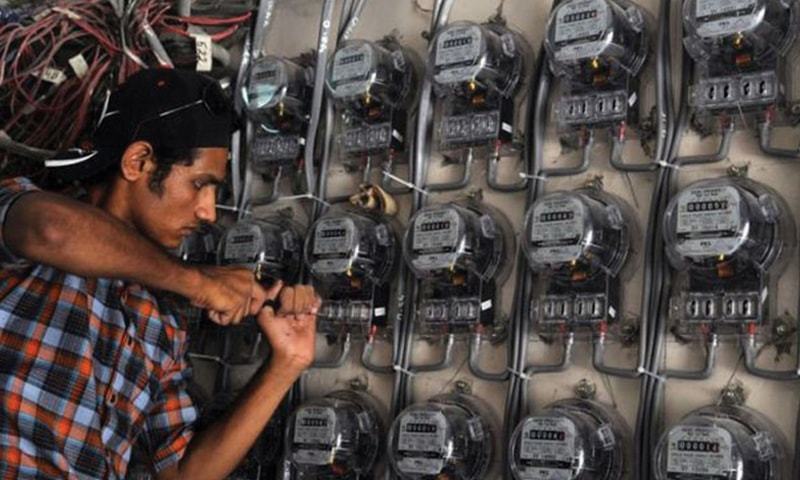ISLAMABAD: The Auditor General of Pakistan (AGP) has found fault with the utilisation of almost Rs3 trillion public funds by the power division, involving huge irregularities, mismanagement, misappropriation and embezzlement.
In its report for the audit year 2019-20 that has been laid before the National Assembly after a delay of almost eight months, the AGP also put question marks over sustainability of the power sector under the current state of affairs, governance shortcomings and weak financial and administrative controls.
The audit is based on financial accounts for fiscal year 2018-19 – the first year under the Pakistan Tehreek-i-Insaf government.
In particular, the country’s top auditor highlighted a total of 318 cases in the accounts of the power division and its associated entities in which Rs2.965tr worth of public funds had been misused. In its key findings, the AGP said 64 varied irregularities of more than Rs107 billion pertained to procurement of electrical equipment, civil and electrical works, consultancy services and contractual mismanagement.
Raises questions over sustainability of sector under current state of affairs
In 50 cases, the AGP highlighted recoveries of more than Rs2.5tr and pointed out 108 other cases of violation of internal rules and regulations of the audited entities involving Rs64bn. In another 50 cases, violations of regulatory laws and regulations involving Rs184bn were unearthed while loss of more than Rs4bn was reported due to fraud, embezzlement, misappropriation and theft in 21 cases.
In four cases, irregularities of Rs1.2bn were reported on account of management of accounts with commercial banks and Rs263 million worth of 21 cases were highlighted pertaining to human resource regularities.
On top of these major findings, the AGP also expressed dissatisfaction over the performance of power distribution companies (Discos) in reducing transmission and distribution (T&D) losses. It said the Discos suffered Rs240bn losses on account of 18.3pc (at the rate of Rs13.06 per 1pc loss) T&D losses in FY2017-18, which increased to Rs276bn in 2018-19 on account of 17.7pc T&D loss at the rate of Rs15.18 per 1pc loss. This meant that even though a minor reduction of 0.6pc was achieved in technical loss that year, it was overturned by the tariff increase.
Moreover, since the regulator had built the cost of 15.8pc losses to consumer tariff, the Discos still suffered Rs72bn losses in these two years even after recovering the cost of such high losses from consumers.
The audit noted that accounting of material was not being done by the field staff as per procedure and hence opportunities rose for leakage and loss. Many reports mentioned maintenance and monitoring of feeders which were not populated, resulting in poor management of feeder losses.
Internal controls in the important areas of cash reconciliation and revenue collection were also found unsatisfactory and fraud in payment of pension in the Discos of Peshawar and Lahore and revenue fraud in the Islamabad Electric Supply Company were also highlighted. “Despite having an internal audit (in the power division), recurrence of frequent irregularities made its effectiveness questionable”, the AGP said.
The Discos billed 93,887 million units to consumers in FY2018-19 worth Rs1.342tr and a recovery of Rs1.061tr was made, indicating a recovery rate of 79.06pc. The shortfall resulted in less receipt of recoveries by the Discos. “Revenue shortfall in the Discos showed managerial inefficiencies and policy bottlenecks constraining CPPA (Central Power Purchasing Agency) to pay-off its energy procurement liabilities”.
The audit noted an improvement of one per cent in the revenue recovery in the previous fiscal 2017-18 but expressed concern that a recovery shortfall of 21pc posed significant operational challenges for the Discos.
The audit also highlighted that total receivables from running and dead defaulters amounted to Rs572bn as of June 2019, including Rs477bn from running defaults and Rs95.3bn from dead defaulters. “Such huge amount of receivables has added to the financial crunch in the power sector.”
As if that was not enough, due to late payment of government subsidies (tariff differential, agricultural tubwells, provinces, Azad Jammu and Kashmir) and outstanding payments from K-Electric, about Rs550bn were held up as on June 2019 and were adding to the circular debt.
The auditors put total circular debt at Rs1.518tr as of June 30, 2019, up by 31pc from Rs1.16tr in June 2018, and noted that major constituents included outstanding capacity payments of Rs370bn and energy payments of Rs227bn.
It was highlighted that debt management for the power sector was being carried out in an ad hoc manner as was also evident from Rs810bn debt parked in the Power Holding Private Limited (PHPL) — a shell entity of the power division. PHPL loans and their financial impact are an extra uncovered cost relating to the purchase of energy. Even the Rs200bn Sukuk bonds issued in 2018-19 through Meezan Bank was a risky venture as 70 properties of the power companies “were sold and leased back” along with issuance of the Sukuk bonds. “This implies that power sector government properties may face a risk of en-masse sale/transfer out to private bodies on account of default in nay principal repayment”.
Published in Dawn, October 26th, 2020














































